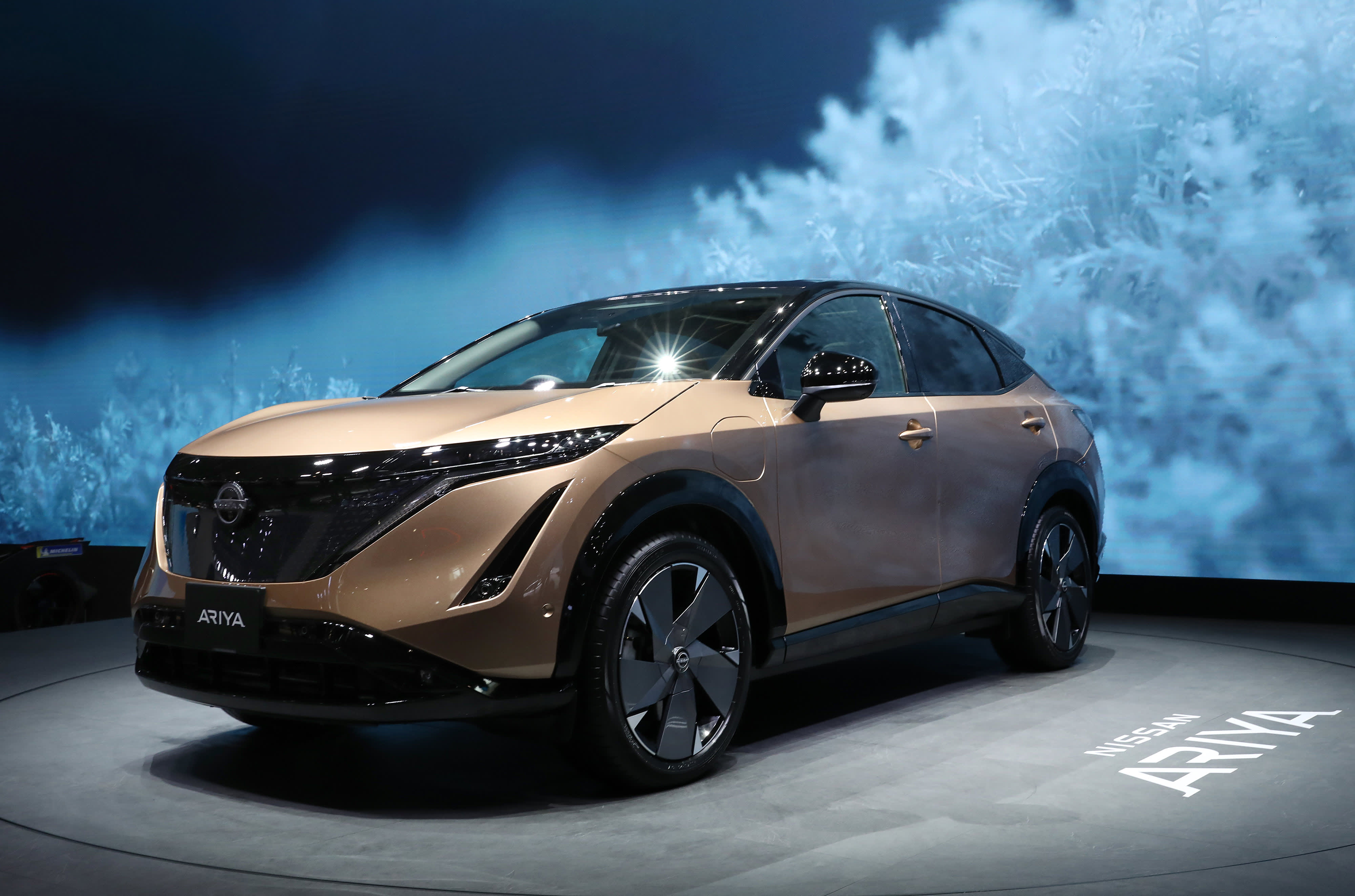
Japanese automaker Nissan has a history of saving itself from the brink of disaster. Right now it is trying to repeat the trick.
Like all other automakers, the company is losing money from the coronavirus pandemic. But it’s also trying to recover from some self-inflicted wounds by former Nissan executives, including ex-CEO Carlos Ghosn. Now it is pulling back on production, releasing some new models and trying to regain its footing and reputation.
In mid-November the automaker posted a quarterly loss of about 44.4 billion yen ($420 million). It is now expecting to lose several times that — about 615 billion yen ($5.9 billion) in the fiscal year 2020, which ends in March. That is an improvement over its original expected loss of about 670 billion yen, which is about the same amount of money it lost in the fiscal year 2019.
Nissan is also dealing with the fallout from Ghosn’s arrest at a Tokyo airport in November 2018. He was accused of severely underreporting his income and misusing company funds. After several months in and out of jail, Ghosn escaped Japan on a private jet by stuffing himself into a box for musical equipment.
Meanwhile, Nissan is both trying to trim its lineup and release some new products. One that much of the automotive world has eyes on is the Ariya, an electric crossover. Nissan had been something of a leader in electric vehicles when it released the Leaf, a small affordable electric hatchback. Other automakers caught up and began stealing the spotlight. The Ariya is a more aspirational product, and it is positioned in a segment popular with customers at the moment.
“When there’s an automotive company in big trouble, you always hear the same joke: there is nothing great product can’t fix,” said Karl Brauer, who is executive analyst for automotive listing and research firm iSeeCars . “If you can make great product, you’d be surprised how many other problems you can have and survive.”




